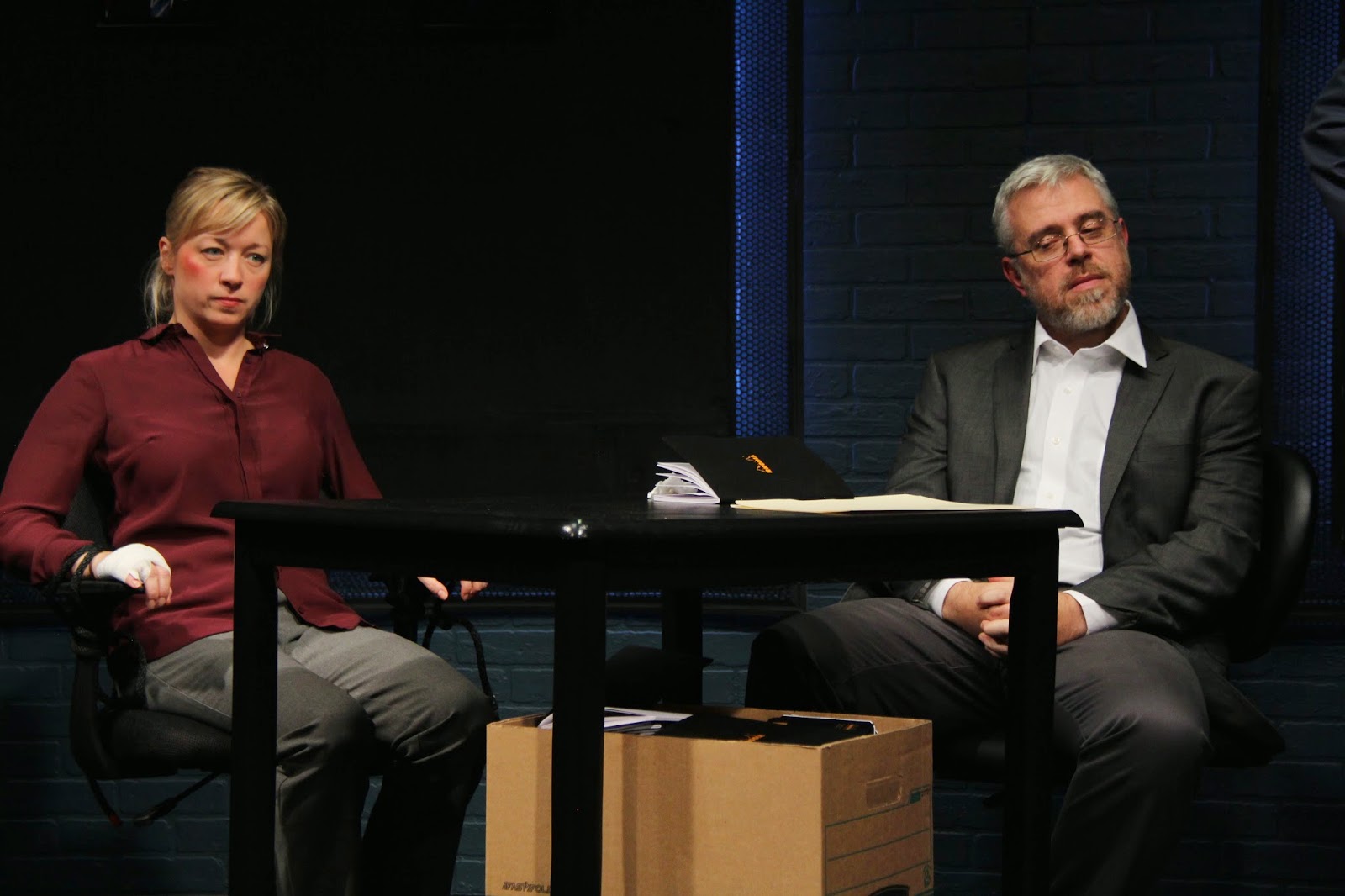 |
| L-R: Kate Middleton and Sean Williams in ASYMMETRIC. Photo by Travis McHale. |
If
Showtime’s Homeland, FX’s Tyrant, Sundance’s The Honorable Woman, CBS’s Madam
Secretary, and USA’s Covert Affairs
all failed to provide you with your needed fix of televised international
espionage shows, there’s still time for you to go to 59E59 Theaters in midtown
Manhattan to catch a performance of Mac Rogers’s Asymmetric in its New York premiere live on stage. Directed by Jordana Williams, Asymmetric is a very well-written and
tightly constructed espionage drama, rife with twists and surprises, with a
modicum of gratuitous omphaloskepsis thrown in to boot.
Josh
Ruskin (Sean Williams) is a washed-up one-time successful spymaster whose
former wife, Sunny Black (Kate Middleton), a highly effective spy in her own
right, now stands accused of selling secrets involving a futuristic drone program
to the enemy. When Josh is brought out
of retirement by Zack (Seth Shelden), who currently heads the top secret unit,
The Fifth Floor, originally built and run by Josh, to interrogate Sunny, all
hell breaks loose.
All
sorts of unexpected questions are raised – and the answers are often even more unexpected
than were the questions. Why did Sunny
leave Josh in the first place? Is it
possible that Sunny, ostensibly a true patriot, really could be guilty of
treason – and, if so, why? How does the
drone program work and who might gain from its disclosure? How does Ford (Bob Maitner), Zack’s callously
sadistic and quite insubordinate subordinate fit into the equation? When, if ever, is the killing of innocents or
civilians – or anyone else, for that matter – really justified? And how will all the play’s loose ends be
tied up – if, indeed, they will?
The
play’s title refers directly to the “asymmetry” that exists in wars between established
states and terrorist organizations.
World War I and World War II, both wars between established non-rogue
states, were relatively “symmetric” in that both sides were similarly armed and
accepted similar rules of engagement: truces were honored; attempts were made
(admittedly not always successfully) to avoid the destruction of hospitals,
schools and churches; suicide bombing was the exception (think hari-kari dive
bombers in World War II) rather than the rule; and the torture of prisoners,
even if it did sometimes occur, at least was understood by all to be a war
crime. But wars between ISIS or Al Qaeda
or Hamas or Hezbollah (all terrorist organizations) or rogue states such as
Iran or North Korea, and the rest of the civilized world (e.g., the US, Great
Britain, France, Israel, et al) are quite “asymmetric”: terrorist organizations
and rogue states know no boundaries, using children and civilians as human
shields or engaging in the beheadings of innocents. And under those circumstances, the civilized
world, whether rightly or wrongly, sometimes finds itself forsaking its own
moral principles in an effort to redress that “asymmetry.”
But
while that is my understanding of the direct significance of the play’s title,
I believe that the playwright actually had much more in mind. I think that he was referring as well to the
“asymmetry” that exists in many other human relationships: the relative
intensity of the feelings that Josh and Sunny had for one another; the conflict
between Zack and Ford; and that between Ford and Josh, as well. It is a tribute to the playwright (and to the
play’s entire cast) that all of these “asymmetries” have been brought so
effectively to the surface and have been so well integrated in this production.



